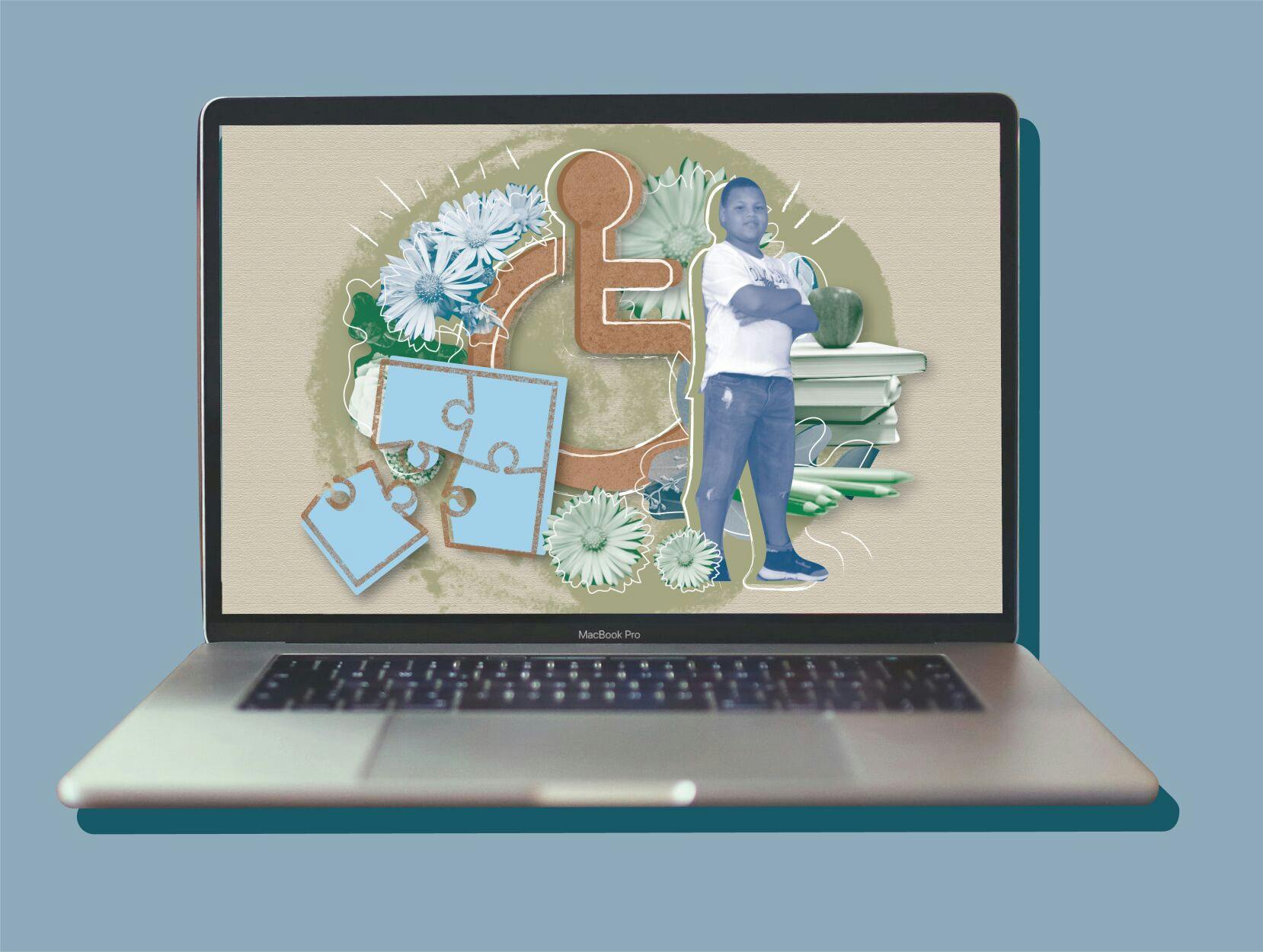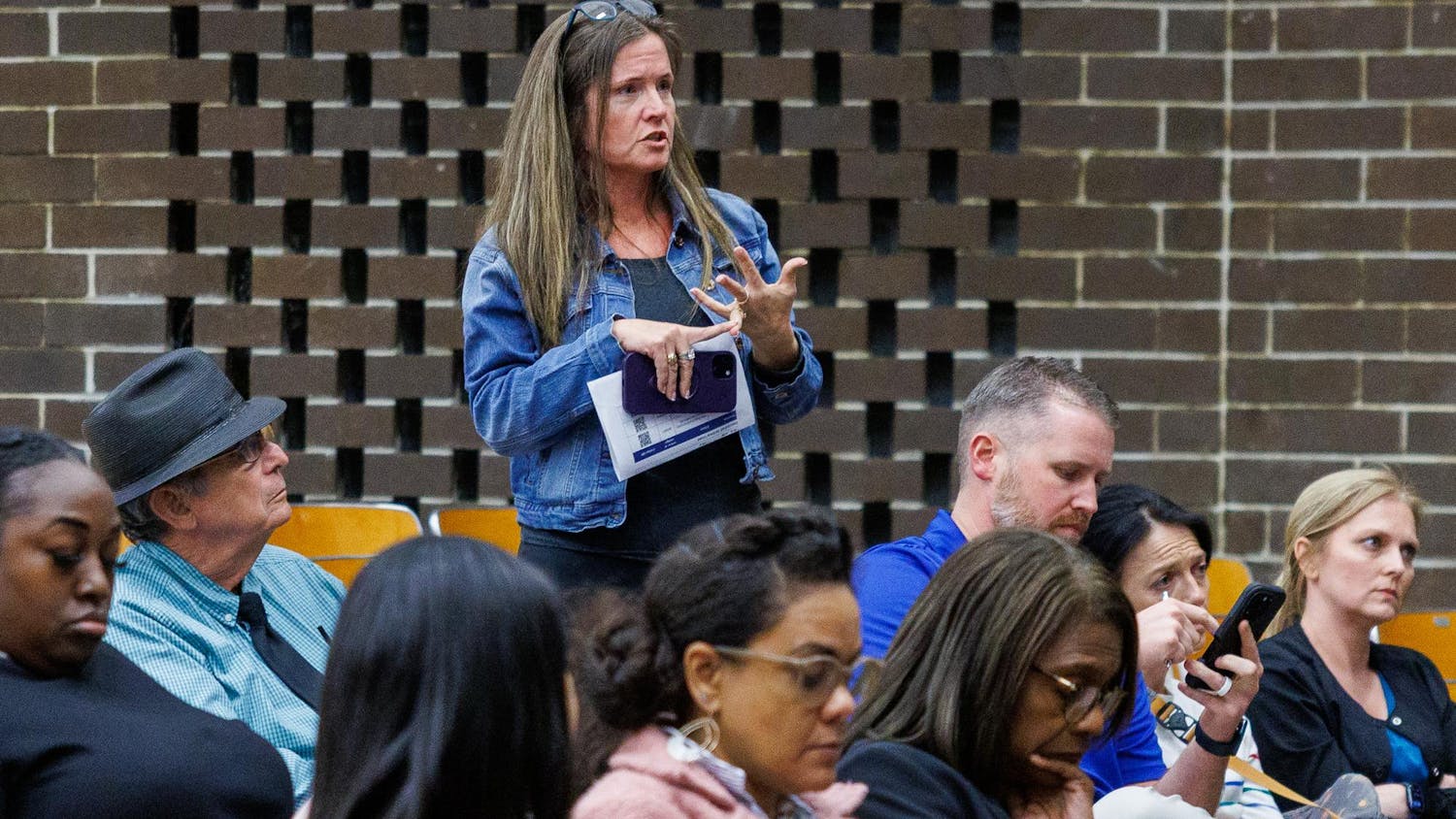
When the schools in Alachua County transitioned to online learning in March due to the COVID-19 pandemic, 12-year-old Jeremiah struggled to get his work done.
For Jeremiah, who has attention-deficit hyperactivity disorder, autism, borderline bipolar disorder, separation anxiety, oppositional defiant disorder and reactive attachment disorder, school days in front of a computer were hard.
His mother, Vanessa Henry, a 54-year-old southwest Gainesville resident, said he had trouble getting work done without the teacher there to keep him on track.
“He gets frustrated very easy if he doesn’t seem to get what he’s doing,” Henry said.
Jeremiah is one of about 4,000 students with disabilities in Alachua County Public Schools, or about 15% of the school district’s students, who were forced into home learning as COVID-19 cases picked up around the county. While all students were launched into a new learning environment, inequities for students with disabilities became more apparent as typical support systems were forced to evolve or were lost in a virtual classroom.
And the concerns are back with the start of a new school year.
That’s why, when the time came to decide how Jeremiah is going to start his first year of middle school, Henry, after lots of prayer, she said, decided to send Jeremiah to Fort Clarke Middle School.
“Being in the classroom with the teacher is what he really needs to be able to be a better student,” she said.
Digital learning can be tricky as classroom supports take on new forms. But for others, a return to in-person learning during the COVID-19 pandemic is dangerous because of increased susceptibility to the virus.
Families are seeing setbacks in their child’s academic and social skills, as their children were pulled away from classrooms, which impacted their accommodations.
ACPS released its latest reopening plan post-COVID-19 closures in March without separate guidelines for how exceptional student education for students like Jeremiah will be handled.
Exceptional Student Education, or ESE, is only mentioned twice in the 17-page opening document. This education designs instruction for students with special needs and disabilities.
Those two mentions reveal that Individual Education Plans, or IEPs, which tailor education to each student, will be honored in the Alachua Digital Academy, the live online learning option with teachers from their assigned school done through Canvas and Zoom, and Alachua eSchool, the more flexible virtual learning option with eSchool-specific educators.
An Individual Education Plan grants Jeremiah classroom support through an assistant behavioral therapist who sits with him in the classroom at all times and helps him manage his behaviors in the classroom.
This therapist doesn’t come to homes, so, with the online switch, Jeremiah’s support became virtual.
Services, such as therapies or accommodations, are available for students with disabilities through all three learning options offered for the school year, said Donna Kidwell, the executive director of ACPS’ ESE and Student Support Services.
Individual Education Plan meetings, in which parents, teachers, therapists and school system representatives meet to discuss goals and support services tailored to each student, can be held in person or online, Kidwell said.
She added that IEP meetings for students will be held during the first couple weeks of school to make sure students’ needs, whether for in-person or virtual learning, are fully documented and supported in the IEP.
For the traditional brick-and-mortar school option, classroom capacity will likely be scaled down to 45 to 60% due to the pandemic. Students must wear face masks and respect social distancing when possible, as noted in the opening document.
If a student has a medical or sensory issue that limits their ability to wear a mask, a doctor will have to provide documentation, such as a letter, about the reason, Kidwell said.
Besides mask-wearing, support in brick-and-mortar classrooms won’t be different from prior years.
“All of these things will happen in the same way they always have,” Kidwell said.
If a child can’t wear a mask, they can wear a face shield, she said. If neither are possible, ACPS staff will use extra personal protective equipment, she added.
Jeremiah sometimes has trouble wearing his mask and dislikes following orders, but his mother said she has talked to him about the importance of social distancing and how to interact safely with peers. He hasn’t been around anyone outside his family in four months aside from when he goes fishing or plays basketball.
If a student needs a teacher or paraprofessional, an educational assistant who provides extra support in the classroom, to come within 6 feet, they should do so quickly to reduce the risk of transmitting the virus, Kidwell said.
In the Alachua Digital Academy, Kidwell said students will still receive specialized instruction.
All models of support will transfer over to live virtual classes through Canvas or Zoom, she said. This includes co-teaching, where students with and without special education needs share a classroom, or small group intervention, where a student might be pulled out for individual instruction.
Occupational and speech language therapy will also be available online, Kidwell said.
To ensure teachers and paraprofessionals are prepared to support students through their computer screens, they underwent two weeks of training via Zoom.
For the flexible Alachua eSchool, Kidwell said the ESE services and support options are more limited. Parents who chose this option can still opt into virtual therapies or drop their child off at brick-and-mortar schools.
There isn’t an exact breakdown of how many ESE students in the district are using each learning option yet, according to Kidwell. Some parents are still thinking over the best decision for their student.
Henry was one those parents making the tough decision.
In the end, while Henry said she was afraid of in-person learning at first, she felt more comfortable after the county released a video detailing in-school COVID-19 protocols, such as daily screenings, though she still worries about Jeremiah at school.
To Henry, Fort Clarke needs to be mindful of some children’s unique needs.
“I wake up every day and don’t know what the day is going to be like with him,” she said. “One day, he’ll start off, he’s doing great, and anything can set him off.”
She said she doesn’t want him to start middle school off in the dean’s office.
“I’ll be covering him every day in prayer that he would be obedient and be able to listen,” she said.
And keep his mask on.





